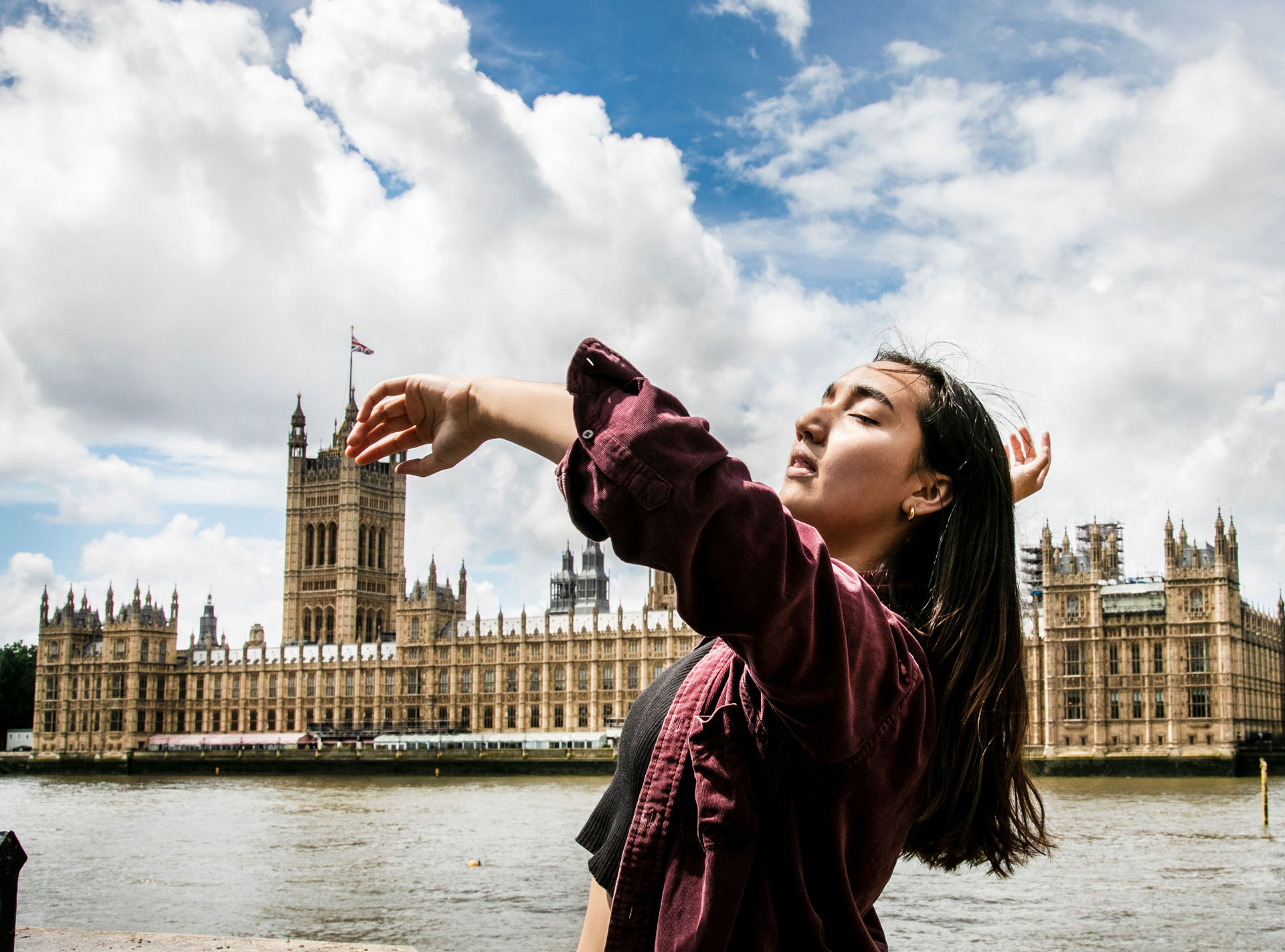NEWS
Putting creativity at the heart of the curriculum: leading figures in arts and creative fields launch the Arts & Minds campaign
Leading lights from the arts join forces to launch the Arts and Minds campaign.
Share

Young creatives Dancer Lara, One Dance UK, Dani Bower Photography,
Leading lights from the arts join forces today (Tuesday 11 February) to launch the Arts and Minds campaign, calling for all children and young people to have the right to study creative subjects and for arts funding in schools to be fully restored.
One Dance UK's Children and Young People's team are there today to support the campaign and advocate for the importance of dance to be part of education and the curriculum.
Arts and Minds is a coalition of over 20 organisations including the National Education Union, Equity and the Musicians’ Union. Some of the campaign’s Arts Ambassadors will join children and young people at the launch, including: Dame Arlene Phillips; model and presenter Dr Eunice Olumide, musicians Andy Gangadeen (drummer with Chase & Status) and Harry Shotta; actor Jamie Kenna (Coronation Street, Peaky Blinders, House of the Dragon), and artist Bob and Roberta Smith.
The campaign is also supported by many other big names in arts and entertainment, including Steve Coogan; Eastenders’ Kellie Bright; classical music stars the Kanneh-Mason family; dancer and choreographer Carlos Acosta; writer Michael Rosen; cartoonist Steve Bell, and Billy Elliot creator Lee Hall.
Together, they are drawing attention to the “creative gap” in schools and calling for the government to put creativity at the heart of learning.
New research* conducted by the campaign with WeThink/Omnisis shows that there is huge demand from young people: 90% of GCSE students want to study a creative subject but two-thirds of school leaders report that they cannot offer the full suite of art, music, dance, drama or media to GCSE level, according to new polling by Teacher Tapp. Overall, participation in arts subjects at GCSE has fallen by 42% since 2010 but almost three-quarters (72%) of students who are not studying any creative subjects say they would like to be.
Meanwhile, half (48%) of parents surveyed by WeThink/Omnisis for Arts and Minds say that they cannot afford extra-curricular arts activities meaning that millions of children are denied any creative outlet and the chance to foster their talents and explore future careers. This is despite the UK’s creative industries delivering almost £125 billion to the economy in 2022 – more value than the life sciences, aerospace and automotive sectors combined.
School leaders point to a lack of funding to explain the gap. At GCSE level, one in four school leaders say they do not have enough funding for teachers/resources or do not have the necessary facilities. Meanwhile over a third (34%), rising to 48% in schools in the most deprived areas, cannot find specialist teachers for these subjects.
Meanwhile in primary schools, 92% of school leaders say lack of funding has negatively impacted creative subjects with effects including reduced resources (62% agree) and fewer cultural trips (53% agree).
Parents are also aware of the creative gap: 81% think children should have the chance to study as many creative subjects as they wish but 63% believe the current system limits children’s creativity. Over four out of five parents (83%) also believe that every child should have the chance to learn dance, drama and music for free.
Actor Jamie Kenna comments, “The arts should be accessible to every child. The opportunity to follow your passions and dreams should not be determined by your wealth and status.”
Dame Arlene Philips comments, “I am committed to the Arts and Minds campaign because I believe that an education that embraces arts is vital. The arts feed the soul and the realisation that your life can be in the arts is the biggest gift for young people that desire it. To give everyone that chance through their school life will be life-changing for so many.”
Dr Kadiatu Kanneh-Mason comments, “It is vital that arts education remains a core part of children’s learning. The school curriculum needs to encourage curiosity, experiment, commitment, teamwork and the widespread benefits of creative thinking. The arts represent knowledge and skills that are central to the intellectual and emotional development of young people.”
The Arts and Minds campaign is asking the government to make five commitments to put creativity at the heart of learning:
- A right to study arts and creative subjects for all children regardless of their background.
- Restore the status of arts and creative education – scrap the EBacc, restore parity between subjects, and give schools the trust and flexibility they need.
- End the exam factory culture – end high-stakes assessments at primary school and reduce the exam burden at GCSE.
- Equip the education system to deliver the broad and balanced curriculum our communities want – increase teacher and subject specific CPD for all teachers.
- Fund the arts – restore school funding to allow schools to invest in arts education, and restore arts funding to facilitate links between the education system and the industry.
Sarah Kilpatrick, president of the National Education Union, comments, “The lack of support for creative subjects has two main drivers. Lack of funding and the reduced status of the arts. But the arts make us who we are. Not only do they contribute significantly to the UK economy, they open minds and communities. Creativity is central to the human experience and it is more important than ever that we support and invest in the arts.”



